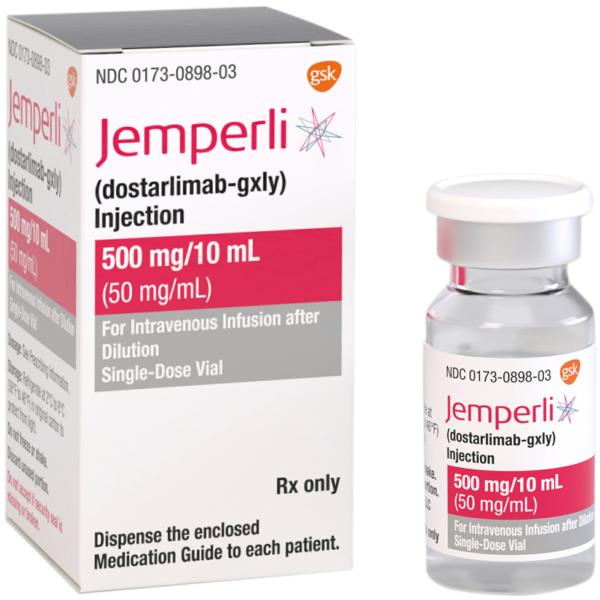Dostarlimab Disease Interactions
There are 3 disease interactions with dostarlimab.
PD-1/PD-L1 inhibitors (applies to dostarlimab) HSCT
Moderate Potential Hazard, Moderate plausibility. Applicable conditions: Bone Marrow Transplantation
Fatal and other serious complications can occur in patients who receive allogeneic hematopoietic stem cell transplantation (HSCT) before or after being treated with a programmed death receptor-1/ligand-1 (PD-1/PD-L1) blocking antibody. Transplant-related complications include hyperacute graft-versus-host disease (GVHD), acute GVHD, chronic GVHD, hepatic veno-occlusive disease after reduced intensity conditioning, and steroid-requiring febrile syndrome (without an identified infectious cause). These complications may occur despite intervening therapy between PD-1/PD-L1 blockade and allogeneic HSCT. It is recommended to follow patients closely for evidence of transplant-related complications and intervene promptly. The benefit versus risks of treatment with a PD-1/PD-L1 blocking antibody before or after an allogeneic HSCT should be considered.
References
- (2023) "Product Information. Opdivo (nivolumab)." Bristol-Myers Squibb, SUPPL-119
- (2023) "Product Information. Zynyz (retifanlimab)." Incyte Corporation
- (2023) "Product Information. Keytruda (pembrolizumab)." Merck Sharp & Dohme LLC, SUPPL-136
- (2023) "Product Information. Libtayo (cemiplimab)." Regeneron Pharmaceuticals Inc, SUPPL-16
- (2023) "Product Information. Jemperli (dostarlimab)." GlaxoSmithKline, SUPPL-6
- (2023) "Product Information. Tecentriq (atezolizumab)." Genentech, SUPPL-51
- (2022) "Product Information. Bavencio (avelumab)." EMD Serono Inc, SUPPL-13
- (2023) "Product Information. Imfinzi (durvalumab)." Astra-Zeneca Pharmaceuticals, SUPPL-42
PD-1/PD-L1 inhibitors (applies to dostarlimab) myasthenia gravis
Moderate Potential Hazard, Moderate plausibility.
Myasthenic syndrome/myasthenia gravis (including exacerbation) has been reported with the use of programmed death receptor-1/ligand-1 (PD-1/PD-L1) blocking antibodies. Care should be exercised when using PD-1/PD-L1 blocking antibodies in patients with myasthenia gravis.
References
- (2023) "Product Information. Opdivo (nivolumab)." Bristol-Myers Squibb, SUPPL-119
- (2023) "Product Information. Zynyz (retifanlimab)." Incyte Corporation
- (2023) "Product Information. Keytruda (pembrolizumab)." Merck Sharp & Dohme LLC, SUPPL-136
- (2023) "Product Information. Libtayo (cemiplimab)." Regeneron Pharmaceuticals Inc, SUPPL-16
- (2023) "Product Information. Jemperli (dostarlimab)." GlaxoSmithKline, SUPPL-6
- (2023) "Product Information. Tecentriq (atezolizumab)." Genentech, SUPPL-51
- (2022) "Product Information. Bavencio (avelumab)." EMD Serono Inc, SUPPL-13
- (2023) "Product Information. Imfinzi (durvalumab)." Astra-Zeneca Pharmaceuticals, SUPPL-42
PD-1/PD-L1 inhibitors (applies to dostarlimab) organ transplant
Moderate Potential Hazard, Moderate plausibility.
Solid organ transplant rejection has been reported with the use of programmed death receptor-1/ligand-1 (PD-1/PD-L1) blocking antibodies. Care should be exercised when using PD-1/PD-L1 blocking antibodies in patients who have received a solid organ transplant.
References
- (2023) "Product Information. Opdivo (nivolumab)." Bristol-Myers Squibb, SUPPL-119
- (2023) "Product Information. Zynyz (retifanlimab)." Incyte Corporation
- (2023) "Product Information. Keytruda (pembrolizumab)." Merck Sharp & Dohme LLC, SUPPL-136
- (2023) "Product Information. Libtayo (cemiplimab)." Regeneron Pharmaceuticals Inc, SUPPL-16
- (2023) "Product Information. Jemperli (dostarlimab)." GlaxoSmithKline, SUPPL-6
- (2023) "Product Information. Tecentriq (atezolizumab)." Genentech, SUPPL-51
- (2022) "Product Information. Bavencio (avelumab)." EMD Serono Inc, SUPPL-13
- (2023) "Product Information. Imfinzi (durvalumab)." Astra-Zeneca Pharmaceuticals, SUPPL-42
Dostarlimab drug interactions
There are 16 drug interactions with dostarlimab.
More about dostarlimab
- dostarlimab consumer information
- Check interactions
- Compare alternatives
- Side effects
- Dosage information
- During pregnancy
- Drug class: anti-PD-1 and PD-L1 monoclonal antibodies (immune checkpoint inhibitors)
- Breastfeeding
- En español
Related treatment guides
Drug Interaction Classification
| Highly clinically significant. Avoid combinations; the risk of the interaction outweighs the benefit. | |
| Moderately clinically significant. Usually avoid combinations; use it only under special circumstances. | |
| Minimally clinically significant. Minimize risk; assess risk and consider an alternative drug, take steps to circumvent the interaction risk and/or institute a monitoring plan. | |
| No interaction information available. |
Further information
Always consult your healthcare provider to ensure the information displayed on this page applies to your personal circumstances.


